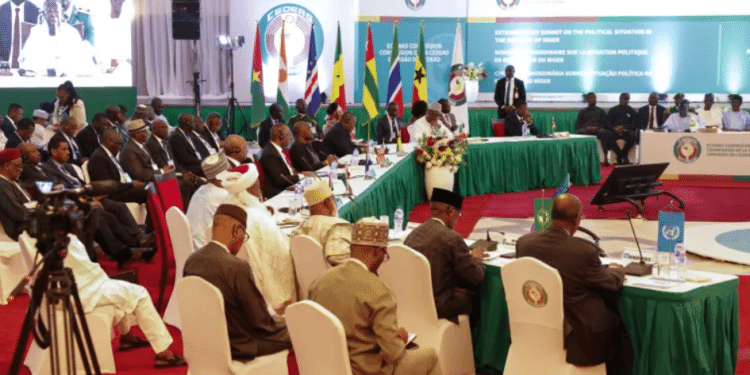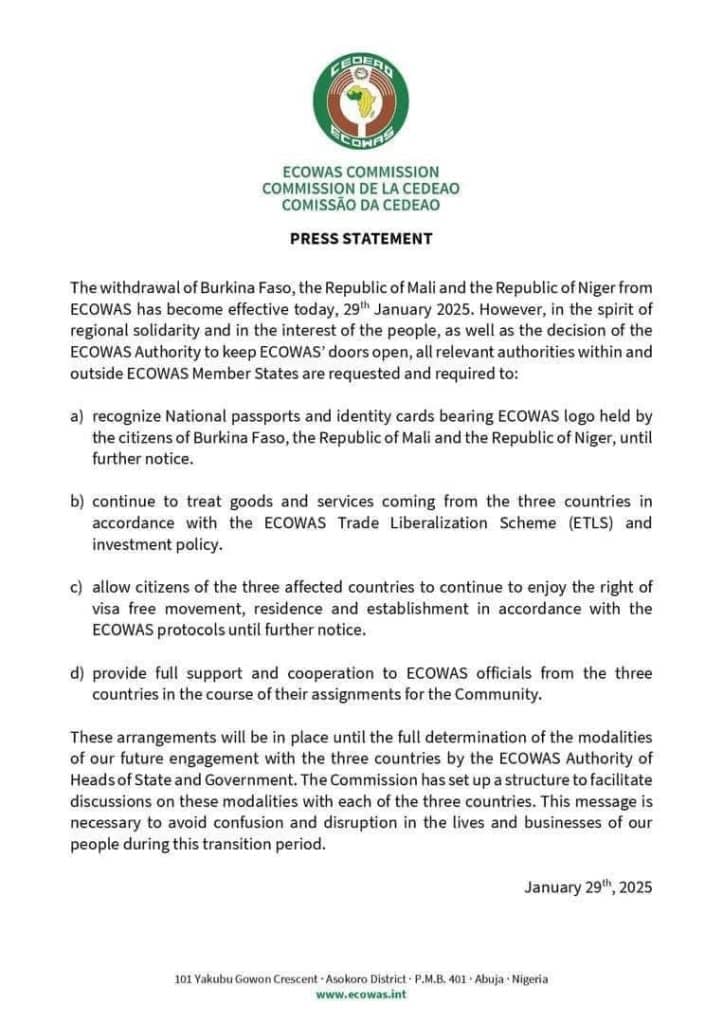The Economic Community of West African States (ECOWAS) has officially recognized the withdrawal of three West African countries – Burkina Faso, Mali, and Niger – from the regional bloc, effective today. This move marks a significant shift in the regional dynamics of West Africa, as these countries have been key players in ECOWAS’ integration agenda.

Despite their exit, ECOWAS has reaffirmed its commitment to regional solidarity and outlined transitional measures to minimize disruptions for citizens and businesses. These measures include:
- Continued Recognition of National Passports and ID Cards: ECOWAS member countries will continue to recognize national passports and ID cards bearing the ECOWAS logo, held by citizens of the three withdrawn countries.
- Uninterrupted Trade Flows: Goods and services from Burkina Faso, Mali, and Niger will continue to benefit from the ECOWAS Trade Liberalization Scheme (ETLS) and investment policies.
- Visa-Free Movement: Citizens of the three withdrawn countries will retain their rights to visa-free movement, residence, and establishment within ECOWAS territories.
These arrangements will remain in effect until a comprehensive framework for future engagement with the three countries is determined by the ECOWAS Authority of Heads of State and Government. The withdrawal of these countries from ECOWAS has also raised concerns about the impact on human rights, as citizens of these countries will no longer have access to the ECOWAS Community Court of Justice, which has jurisdiction to hear human rights cases.



